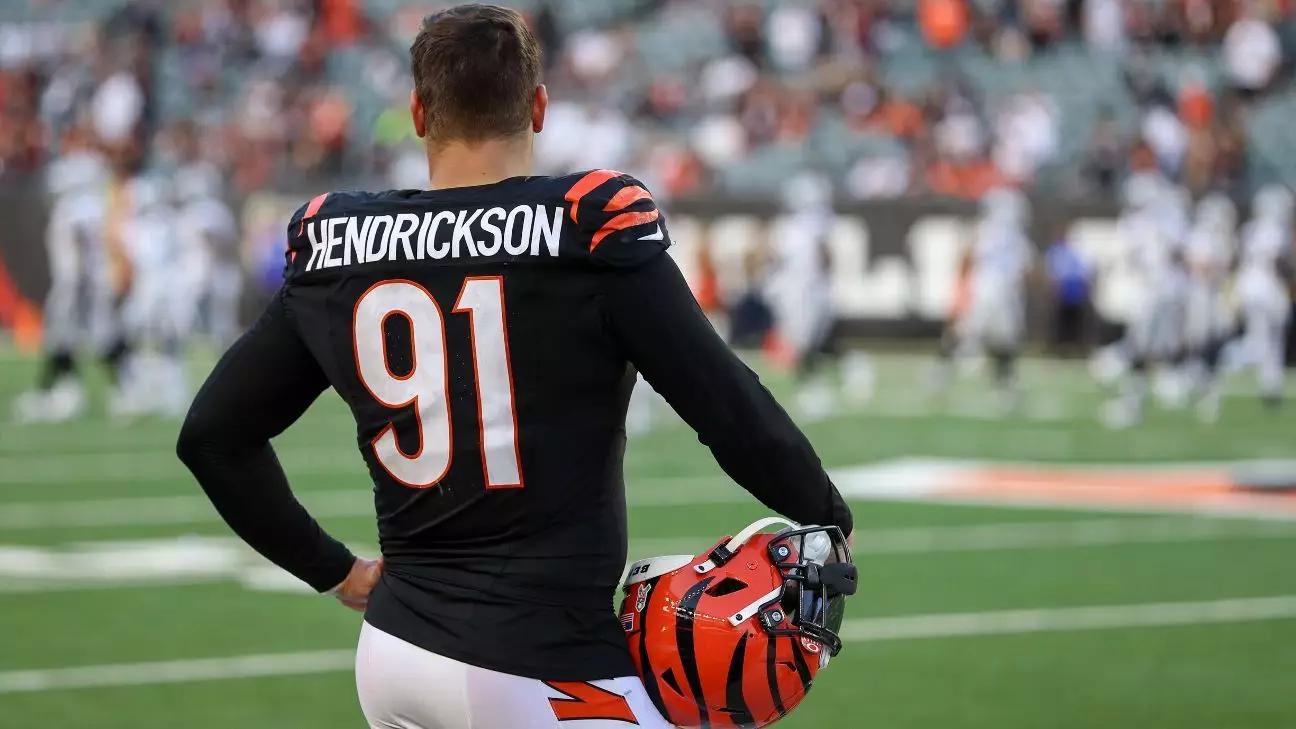Trey Hendrickson’s unwavering refusal to participate in the upcoming NFL season underscores a larger narrative about athletes asserting control over their careers amidst the evolving landscape of professional sports. Hendrickson, a proven star with a recent dominant season, is leveraging his position not merely for financial gain but to emphasize the importance of security and respect in contract negotiations. His stance reveals a shift where players are increasingly aware of their worth and are willing to sacrifice game time for the sake of securing more favorable terms. This is emblematic of a wider movement where athletes refuse to accept the traditional, often exploitative, structures that have long dominated professional sports.
Negotiation Dynamics and the Power Play
While Hendrickson’s technical stats—leading the league with 17.5 sacks—are impressive, his negotiations highlight a critical mismatch: performance versus guaranteed compensation. His desire for guaranteed money signifies a quest for stability in an uncertain profession plagued by injury risks and short career spans. The Bengals’ stance on not offering fully guaranteed contracts beyond the first season reflects a conservative approach meant to mitigate risk, but it also places Hendrickson at a bargaining disadvantage. His actions—holding out, refusing to practice, and seeking a trade—are acts of strategic leverage, challenging the status quo that often undervalues players’ long-term security.
The Significance of Athlete Autonomy
Hendrickson’s comments, notably dismissing recognition and emphasizing security, reflect a deeper shift in athlete mentality. It symbolizes a move towards prioritizing mental peace, family stability, and personal agency over transient fame or accolades. His stance questions the morality of a system that forces players into precarious situations where they must choose between playing for less or risking career and financial stability. In this sense, Hendrickson’s stand isn’t solely about his contract; it’s a protest against an embedded culture that sometimes devalues the human element of sports. His actions may inspire other players to re-evaluate their priorities and stand up for their rights, ultimately fostering a more equitable balance of power within the league.
Implications for the NFL and Future Negotiations
The Hendrickson saga raises important questions about fairness and player agency in the NFL. It signals to teams that athletes are willing to escalate personal stakes rather than accept unfavorable terms quietly. The league’s response to such disputes could catalyze a shift towards more player-friendly policies, including better guarantees and more transparent negotiations. For Hendrickson, this stance might come with short-term sacrifices, but it presses the league to reconsider how it values its most vital assets—its players. His stand represents a challenge to the entrenched, often paternalistic contract norms, pushing the sport toward a future where player rights are more respected and negotiations are more transparent.
In essence, Trey Hendrickson’s firm position encapsulates a broader fight for dignity and fairness in professional sports. His refusal to accept less than what he deserves not only demonstrates his confidence in his abilities but also symbolizes an evolving consciousness about player empowerment. Whether or not he will miss the upcoming season, his actions serve as a wake-up call—highlighting that sometimes, true power lies not in the game, but in the unwavering refusal to settle for less.

